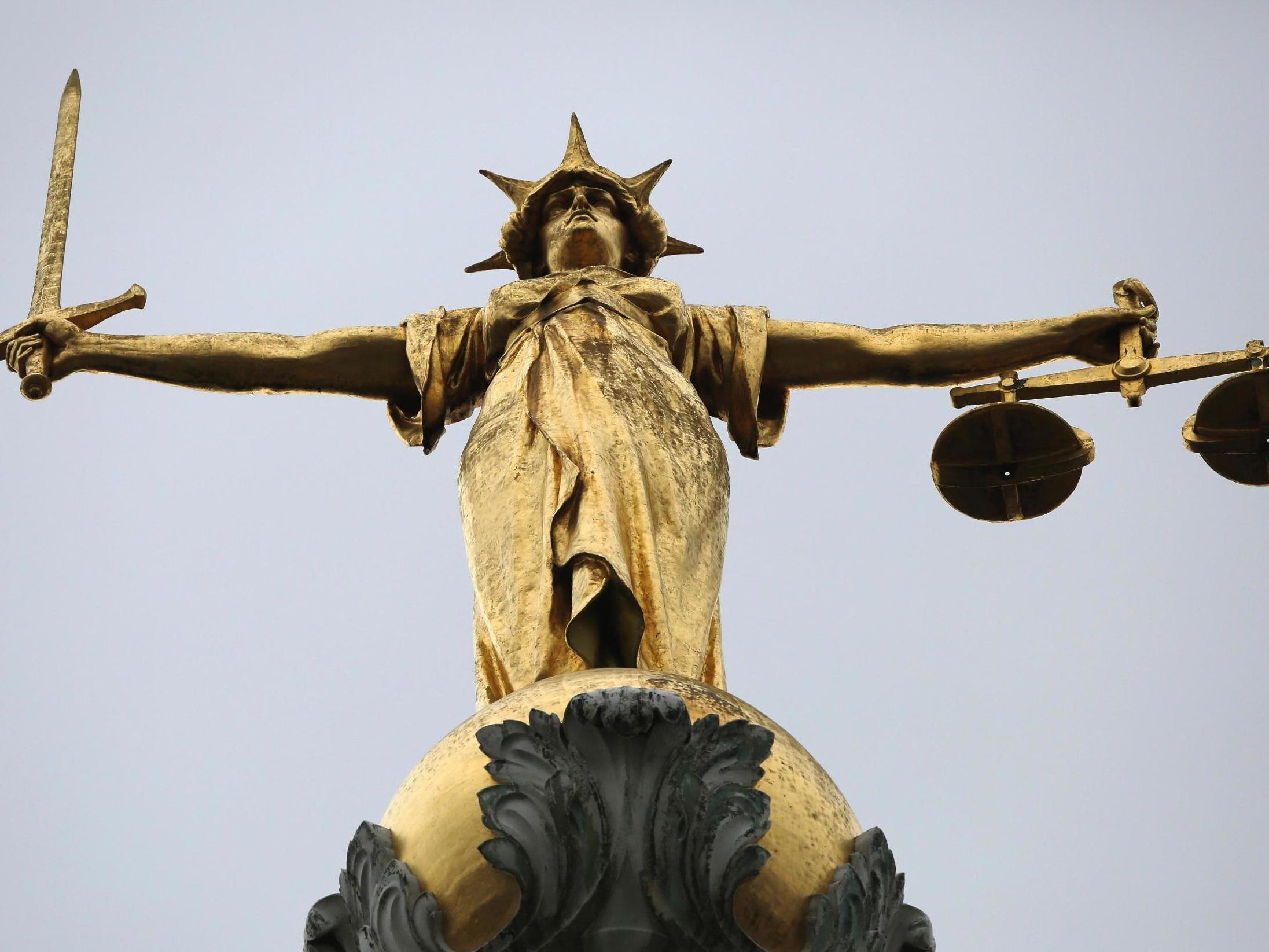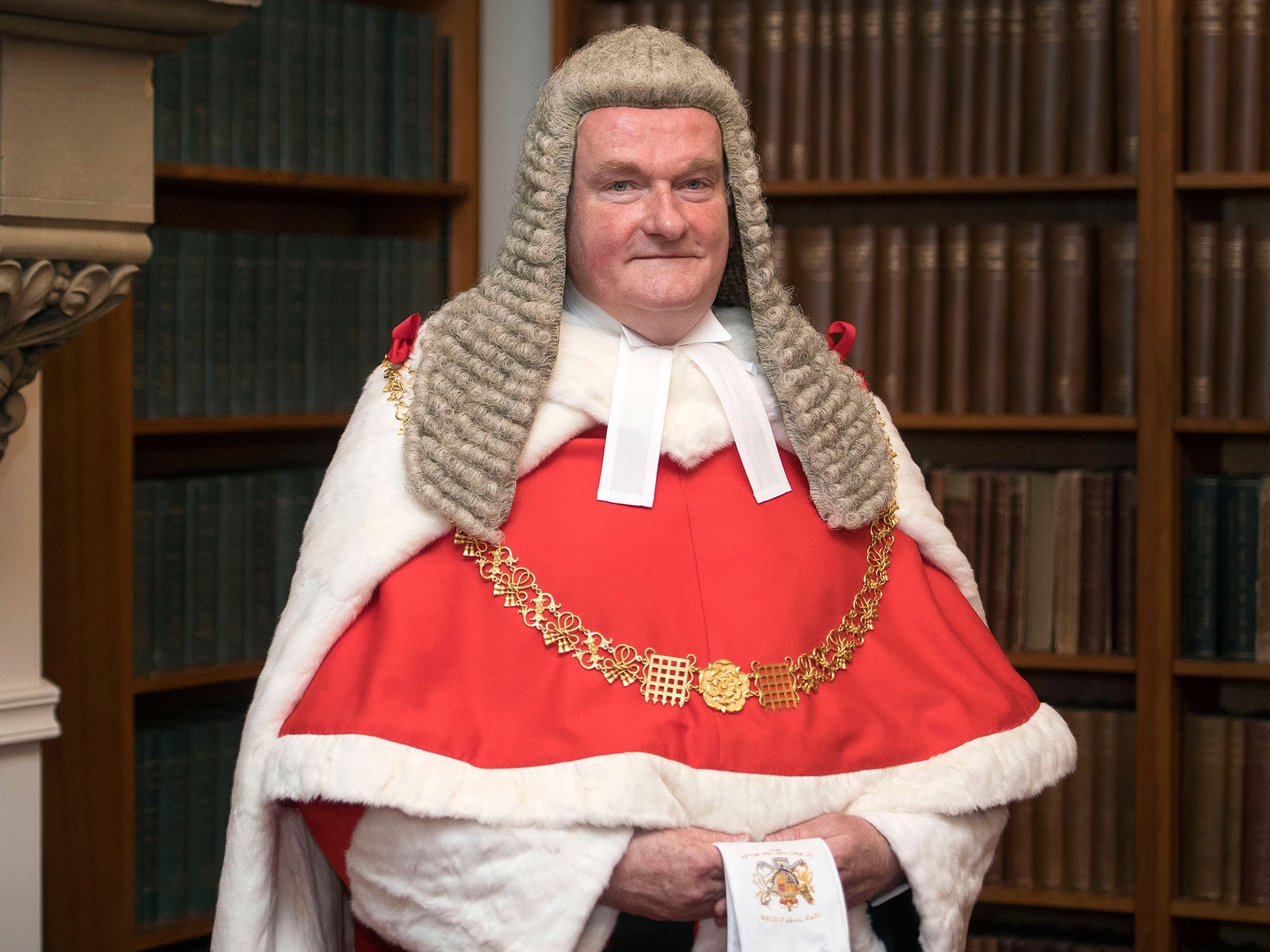Court backlog rockets to more than half a million cases in England and Wales during coronavirus
Lord Chief Justice supports radical measures including cutting jury numbers to tackle mounting backlog

The backlog of court cases waiting to be heard in England and Wales has rocketed to more than half a million during the coronavirus pandemic.
Some trials are not expected to start until December 2021, amid warnings that victims may drop out of delayed prosecutions.
Crime fell dramatically during the UK’s lockdown, but the decline has not been sufficient to offset the rocketing backlog, which was rising long before the pandemic.
The number of cases waiting to be heard in the magistrates’ courts – where all types of crimes are initially listed – is nearing half a million.
Almost 483,700 cases were waiting to be dealt with by 17 May, up from 395,600 when the UK’s lockdown came into force in March.
Thousands will progress to crown courts, which are responsible for the most serious crimes.
In December, the crown court backlog stood at 37,400 cases, following years of austerity and government cuts to the number of court sitting days.
But by the end of last month, the number had rocketed to more than 40,500 – an increase of 22 per cent according to analysis by the Criminal Bar Association (CBA).
Combined, the magistrates’ and crown courts now have more than 524,000 cases waiting to be heard and the number is still rising rapidly.
The coronavirus lockdown forced the closure of more than half of courts in England and Wales, with only urgent cases such as overnight custody, terrorism and coronavirus-related crimes being dealt with.
All trials were stopped in England and Wales on 23 March, and although a small number have started to resume, social distancing rules mean they must spread through three courtrooms, dramatically reducing capacity.
Cases are also taking longer to make their way through the system, with an average of 511 days from “offence to completion” in 2019, up from 391 days in 2010.
Claire Waxman, London’s victims commissioner, described the backlog as a “ticking timebomb”, adding: “We’re going to see it getting worse and worse.”
“The impact of delays is huge,” she told The Independent. “I worry that we may see a high proportion of victims dropping out as a result.”
The Lord Chief Justice has publicly backed radical measures including reducing juror numbers, removing the right to a jury trial from some cases and using conference centres for court overspill to tackle the backlog.
David Lammy, Labour’s shadow justice secretary, said jury trials were a “fundamental part of our democratic settlement”.
“Criminal trials without juries are a bad idea,” he wrote on Twitter on Saturday.
“The government need to pull their finger out and acquire empty public buildings across the country to make sure these can happen in a way that is safe.”
The chair of the CBA has called for greater investment to allow more cases to be heard.
Caroline Goodwin QC said: “It’s very simple, to cut the backlog and to stop this excruciating delay, we need Treasury to step up to the plate. Treasury must pay to allow all available court buildings to be used and all available judges to preside over hearings and when that is done utilise more buildings and set the recorders (part-time judges) to work alongside the judges.
“Jury trials have resumed and that is a huge step forward of which we should be proud, but only for now in a limited number of courts.”
She added: ”Being serious about law and order while ensuring the innocent don’t suffer miscarriages of justice means being serious about the billions of investment needed now across the board."

Last week, the Lord Chief Justice said parliament should “seriously consider” changing the law so that jury numbers could be cut from 12 to seven, meaning more trials can be held.
Lord Burnett also supports the removal of the right to a jury trial for “either-way cases”, where a defendant can currently choose to go to the crown court or be sent there if magistrates do not have the necessary sentencing powers for crimes.
Instead of a full trial, guilt or innocence would be decided by a judge sitting with two lay magistrates under the proposals.
Either-way offences include theft, burglary, drug possession and actual bodily harm.
The most serious crimes, such as murder, rape and robbery, can only be dealt with by crown courts.
The Lord Chief Justice said the system could face “really serious problems” depending on how long social distancing continues, and if it reduces to one million.
“If this emergency comes to an end within a relatively few months then the backlog – uncomfortable though it might be – would be containable without making very substantial changes,” he added.
“But if we are in something approaching the same position in four, five, six months or more then the government and parliament has a difficult choice.
“Do we conduct these trials in a way that ordinarily wouldn’t be thought appropriate or are we content for them simply to be put off for a very long period?”
Provisional data shows that crime recorded by police and England and Wales fell by 18 per cent in the month to 7 June, compared to the same period last year.
Offences have started to pick up as lockdown restrictions have eased, and there has been an 8 per cent year-on-year increase in domestic abuse incidents.
Police and charities fear that violence increased inside homes during the most intense period of the lockdown, and that victims may only now be seeking help.
Assaults on emergency service workers also rose by a quarter, including people claiming to have coronavirus and coughing, and protesters attacking police at recent demonstrations.
A HM Courts and Tribunals Service spokesperson said: “We have worked closely with the judiciary to safely continue thousands of hearings during the pandemic.
“This includes prioritising urgent cases, such as those involving domestic abuse, swiftly increasing our capacity to hear cases remotely, and resuming jury trials so that justice can continue to be done.
“This data reflects the unprecedented circumstances facing the court system and we will continue to work on further measures to ensure justice is delivered.”
Bookmark popover
Removed from bookmarks